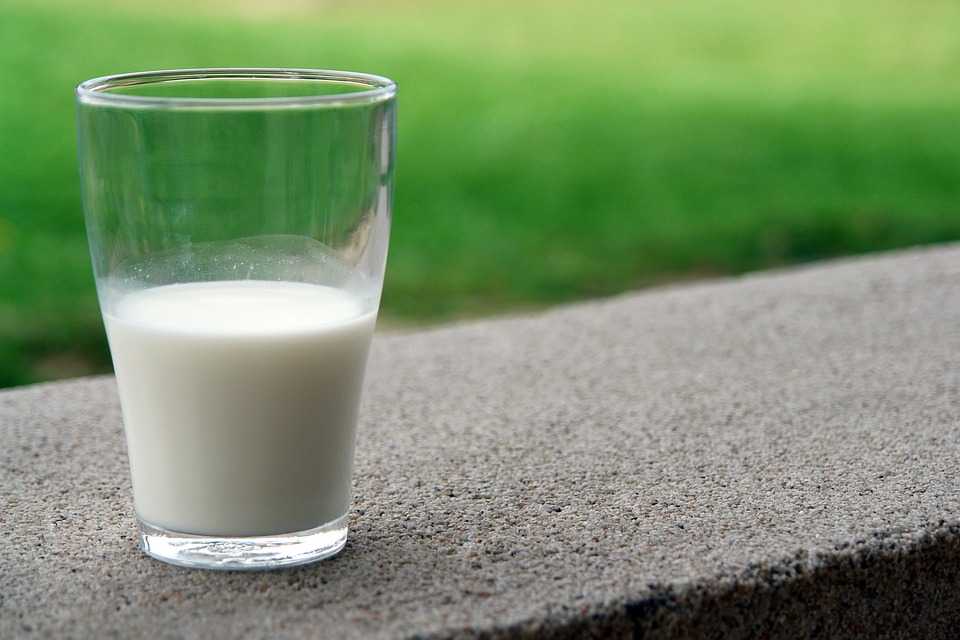The Secret Ingredient: Adding Nutrition Drinks to Your Child’s Diet
Introduction
In today’s fast-paced world, ensuring that children receive balanced and nutritious meals is more challenging than ever. With busy schedules and a plethora of food choices, many parents find it difficult to meet their child’s nutritional needs. One solution that has gained traction is the inclusion of nutrition drinks in children’s diets. This article explores the benefits, types, and considerations when adding nutrition drinks to your child’s regimen.
Understanding Nutritional Needs
1. The Importance of Balanced Nutrition
Children’s bodies require a variety of nutrients for optimal growth and development. A balanced diet should include:
- Carbohydrates: For energy
- Proteins: For muscle growth and repair
- Fats: For brain development
- Vitamins and Minerals: For various bodily functions and a healthy immune system
Inadequate intake of any of these nutrients can hinder a child’s growth and affect their overall well-being. As such, parents are often on the lookout for ways to supplement their children’s diets effectively.
2. Common Nutritional Deficiencies
Research indicates that many children do not receive adequate amounts of essential vitamins and minerals, leading to deficiencies. Common deficiencies include:
- Vitamin D: Important for bone health
- Iron: Essential for cognitive development
- Calcium: Vital for strong bones
- Fiber: Important for digestive health
Recognizing these deficiencies can help parents make informed decisions about incorporating nutrition drinks.
What are Nutrition Drinks?
1. Definition and Types
Nutrition drinks are beverages designed to provide essential nutrients that may be missing from a child’s diet. They come in various forms, including:
- Meal Replacement Shakes: Designed to substitute a meal
- Supplemental Drinks: Intended to complement regular meals
- Protein Shakes: Focused on providing additional protein to aid in growth and recovery
2. Ingredients in Nutrition Drinks
Most nutrition drinks contain a blend of:
- Protein: Sourced from milk, soy, or plant-based proteins
- Carbohydrates: Typically from sugars or carbohydrates for quick energy
- Vitamins and Minerals: Fortified with essential nutrients
- Fats: Healthy fats for brain and body function
Understanding the ingredients helps parents choose drinks that align with their child’s dietary needs.
Benefits of Adding Nutrition Drinks
1. Convenience
One of the primary advantages of nutrition drinks is convenience. For busy parents, having ready-to-drink options can help ensure that children are still receiving nutrition even when mealtime gets chaotic.
2. Enhanced Nutritional Intake
Nutrition drinks can serve as an effective way to fill in dietary gaps. For instance, if a child is picky about eating fruits and vegetables, a nutrition drink fortified with vitamins and minerals can help bridge that gap.
3. Promoting Healthy Growth
Many nutrition drinks are designed specifically for children and contain age-appropriate levels of nutrients. This can support healthy growth and development, ensuring that children receive what they need during crucial growth phases.
4. Support for Active Lifestyles
For active children or those engaged in sports, nutritional drinks can provide an easy source of energy. They can help replenish nutrients lost during physical activity and support recovery.
5. Variety and Palatability
Kids can sometimes be resistant to certain foods. Nutrition drinks often come in various flavors, making them more appealing. This variety can encourage children to consume nutrients they might otherwise avoid.
Choosing the Right Nutrition Drink
1. Age Appropriateness
Not all nutrition drinks are suitable for every age group. When selecting a drink, check that it is specifically designed for your child’s age. Pediatricians often recommend options tailored to the nutritional requirements of various age groups.
2. Ingredient Transparency
Look for drinks that list their ingredients clearly. Parents should be vigilant about avoiding drinks with excessive added sugars, artificial flavors, or preservatives. Opt for those with higher protein content and lower sugar levels.
3. Allergen Consideration
Always consider your child’s allergies when choosing a nutrition drink. Many drinks may contain common allergens, including dairy, soy, or nuts. Ensure that any product is safe for your child’s consumption.
4. Consult with a Healthcare Professional
Before introducing any nutrition drink, it’s advisable to consult with a healthcare provider or a pediatric dietitian. They can recommend suitable products based on individual nutritional needs.
Integrating Nutrition Drinks into the Diet
1. Meal Replacement or Supplement?
Decide whether you want nutrition drinks to replace a meal or act as a supplement. In cases of extreme picky eating, they may replace a meal. However, for most children, they should complement a balanced diet.
2. Smart Pairing with Foods
Combine nutrition drinks with whole foods to maximize intake. Pairing a drink with a piece of fruit or some whole-grain toast can add bulk and create a balanced snack.
3. Regularity
Incorporate nutrition drinks into your child’s diet regularly, but in moderation. It should not become the primary source of nutrition but rather an additional way to meet dietary needs.
4. Encourage Awareness
Teach children about nutrition and the role of these drinks within a healthy lifestyle. This can help them make informed choices about what they consume.
Potential Drawbacks and Considerations
1. Over-reliance
One concern with nutrition drinks is that children may become overly reliant on them, neglecting whole foods. It’s essential to maintain a focus on a varied diet rich in fruits, vegetables, and whole grains.
2. Taste Preferences
Some children may not like the taste of certain nutrition drinks. It may take some trial and error to find the flavors they enjoy.
3. Nutritional Balance
Nutrition drinks should not be viewed as a complete substitute for food. It’s vital to ensure that they are part of a well-rounded diet.
4. Cost
Nutrition drinks can be more expensive than whole foods. Parents should factor in the financial aspect when considering incorporating them into their child’s diet.
Success Stories and Testimonials
1. A Case Study: The Picky Eater
Many parents facing the challenges of picky eaters have successfully incorporated nutrition drinks into their children’s diets. For instance, a mother noticed her son’s refusal to eat vegetables was affecting his energy levels and growth. After consulting with a pediatric dietitian, she introduced a vegetable-fortified nutrition drink into his daily routine. Over time, she found that he became more open to trying new foods knowing that he was still getting essential nutrients.
2. Success in Sports
For active children involved in sports, nutrition drinks can serve as an effective way to replenish energy and promote recovery. A parent reported that her daughter, a soccer player, benefited from having a protein-rich nutrition drink after games. This helped her maintain stamina throughout the season and improved her performance.
Conclusion
Incorporating nutrition drinks into your child’s diet can be a strategic way to help them meet their nutritional needs. With the right choices, these drinks can provide essential nutrients, support active lifestyles, and even introduce variety into their diet. However, they should never replace the importance of whole foods in a balanced diet. Always consult with healthcare professionals to tailor choices to your child’s specific needs. Ultimately, a holistic approach to nutrition is key to fostering healthy growth and well-being.
By considering the insights and recommendations in this article, parents can make informed choices about the role of nutrition drinks in their child’s dietary regime, setting the foundation for a lifetime of healthy eating habits.


























Add Comment